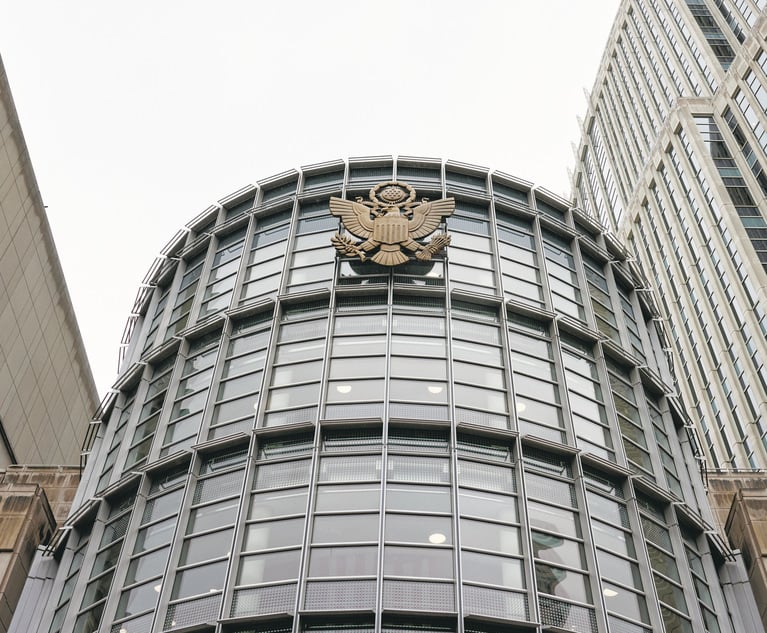Different Federal Court Approaches to Scheme Liability
A circuit split has emerged over the scope of Lorenzo's holding, which reflects a fundamental disagreement about the relationship between scheme liability and Rule 10b-5(b).
January 06, 2023 at 02:10 PM
7 minute read

Historically, federal courts generally agreed that scheme liability under SEC Rule 10b-5(a) and (c) requires something more than a misstatement or omission—with misstatements and omissions typically being litigated under Rule 10b-5(b) instead. The Supreme Court in Lorenzo v. SEC, 139 S. Ct. 1094 (2019), however, held that an individual who disseminates a misstatement, without other fraudulent conduct, is potentially liable under the scheme liability provisions of Rule 10b-5. Subsequently, a circuit split has emerged over the scope of Lorenzo's holding, which reflects a fundamental disagreement about the relationship between scheme liability and Rule 10b-5(b).
The Second Circuit, like several other circuits, has long held that misstatements and omissions cannot form the "sole basis" for a scheme liability claim. Lentell v. Merrill Lynch & Co., 396 F.3d 161, 171 (2d Cir. 2005). In other words, the scheme must "also encompass conduct beyond those misrepresentations or omissions." WPP Luxembourg Gamma Three Sarl v. Spot Runner, 655 F.3d 1039, 1057 (9th Cir. 2011). Some courts adopted this rule to discourage private plaintiffs from attempting to evade some of the PSLRA's heightened pleading requirements by recasting their Rule 10b-5(b) allegations as scheme liability claims. Lentell, 396 F.3d at 177. Courts have also justified the rule as safeguarding the distinction between primary and secondary liability. The private right of action under Rule 10b-5 does not include aiding-and-abetting liability, Central Bank of Denver, N.A. v. First Interstate Bank of Denver, N.A., 511 U.S. 164, 180 (1994), but permitting scheme liability claims based solely on misstatements or omissions, without other actionable conduct, may allow private plaintiffs to sue aiders and abettors, SEC v. Rio Tinto plc, 41 F.4th 57, 55 (2d Cir. 2022).
This content has been archived. It is available through our partners, LexisNexis® and Bloomberg Law.
To view this content, please continue to their sites.
Not a Lexis Subscriber?
Subscribe Now
Not a Bloomberg Law Subscriber?
Subscribe Now
NOT FOR REPRINT
© 2025 ALM Global, LLC, All Rights Reserved. Request academic re-use from www.copyright.com. All other uses, submit a request to [email protected]. For more information visit Asset & Logo Licensing.
You Might Like
View All
Disbarred NY Atty Receives 54-Month Prison Sentence After $3M Embezzlement
3 minute read

Charlie Javice Jury Will Not See Her Texts About Elizabeth Holmes

'You Became a Corrupt Politician': Judge Gives Prison Time to Former Sen. Robert Menendez for Corruption Conviction
5 minute readLaw Firms Mentioned
Trending Stories
- 1States Accuse Trump of Thwarting Court's Funding Restoration Order
- 2Microsoft Becomes Latest Tech Company to Face Claims of Stealing Marketing Commissions From Influencers
- 3Coral Gables Attorney Busted for Stalking Lawyer
- 4Trump's DOJ Delays Releasing Jan. 6 FBI Agents List Under Consent Order
- 5Securities Report Says That 2024 Settlements Passed a Total of $5.2B
Who Got The Work
J. Brugh Lower of Gibbons has entered an appearance for industrial equipment supplier Devco Corporation in a pending trademark infringement lawsuit. The suit, accusing the defendant of selling knock-off Graco products, was filed Dec. 18 in New Jersey District Court by Rivkin Radler on behalf of Graco Inc. and Graco Minnesota. The case, assigned to U.S. District Judge Zahid N. Quraishi, is 3:24-cv-11294, Graco Inc. et al v. Devco Corporation.
Who Got The Work
Rebecca Maller-Stein and Kent A. Yalowitz of Arnold & Porter Kaye Scholer have entered their appearances for Hanaco Venture Capital and its executives, Lior Prosor and David Frankel, in a pending securities lawsuit. The action, filed on Dec. 24 in New York Southern District Court by Zell, Aron & Co. on behalf of Goldeneye Advisors, accuses the defendants of negligently and fraudulently managing the plaintiff's $1 million investment. The case, assigned to U.S. District Judge Vernon S. Broderick, is 1:24-cv-09918, Goldeneye Advisors, LLC v. Hanaco Venture Capital, Ltd. et al.
Who Got The Work
Attorneys from A&O Shearman has stepped in as defense counsel for Toronto-Dominion Bank and other defendants in a pending securities class action. The suit, filed Dec. 11 in New York Southern District Court by Bleichmar Fonti & Auld, accuses the defendants of concealing the bank's 'pervasive' deficiencies in regards to its compliance with the Bank Secrecy Act and the quality of its anti-money laundering controls. The case, assigned to U.S. District Judge Arun Subramanian, is 1:24-cv-09445, Gonzalez v. The Toronto-Dominion Bank et al.
Who Got The Work
Crown Castle International, a Pennsylvania company providing shared communications infrastructure, has turned to Luke D. Wolf of Gordon Rees Scully Mansukhani to fend off a pending breach-of-contract lawsuit. The court action, filed Nov. 25 in Michigan Eastern District Court by Hooper Hathaway PC on behalf of The Town Residences LLC, accuses Crown Castle of failing to transfer approximately $30,000 in utility payments from T-Mobile in breach of a roof-top lease and assignment agreement. The case, assigned to U.S. District Judge Susan K. Declercq, is 2:24-cv-13131, The Town Residences LLC v. T-Mobile US, Inc. et al.
Who Got The Work
Wilfred P. Coronato and Daniel M. Schwartz of McCarter & English have stepped in as defense counsel to Electrolux Home Products Inc. in a pending product liability lawsuit. The court action, filed Nov. 26 in New York Eastern District Court by Poulos Lopiccolo PC and Nagel Rice LLP on behalf of David Stern, alleges that the defendant's refrigerators’ drawers and shelving repeatedly break and fall apart within months after purchase. The case, assigned to U.S. District Judge Joan M. Azrack, is 2:24-cv-08204, Stern v. Electrolux Home Products, Inc.
Featured Firms
Law Offices of Gary Martin Hays & Associates, P.C.
(470) 294-1674
Law Offices of Mark E. Salomone
(857) 444-6468
Smith & Hassler
(713) 739-1250






